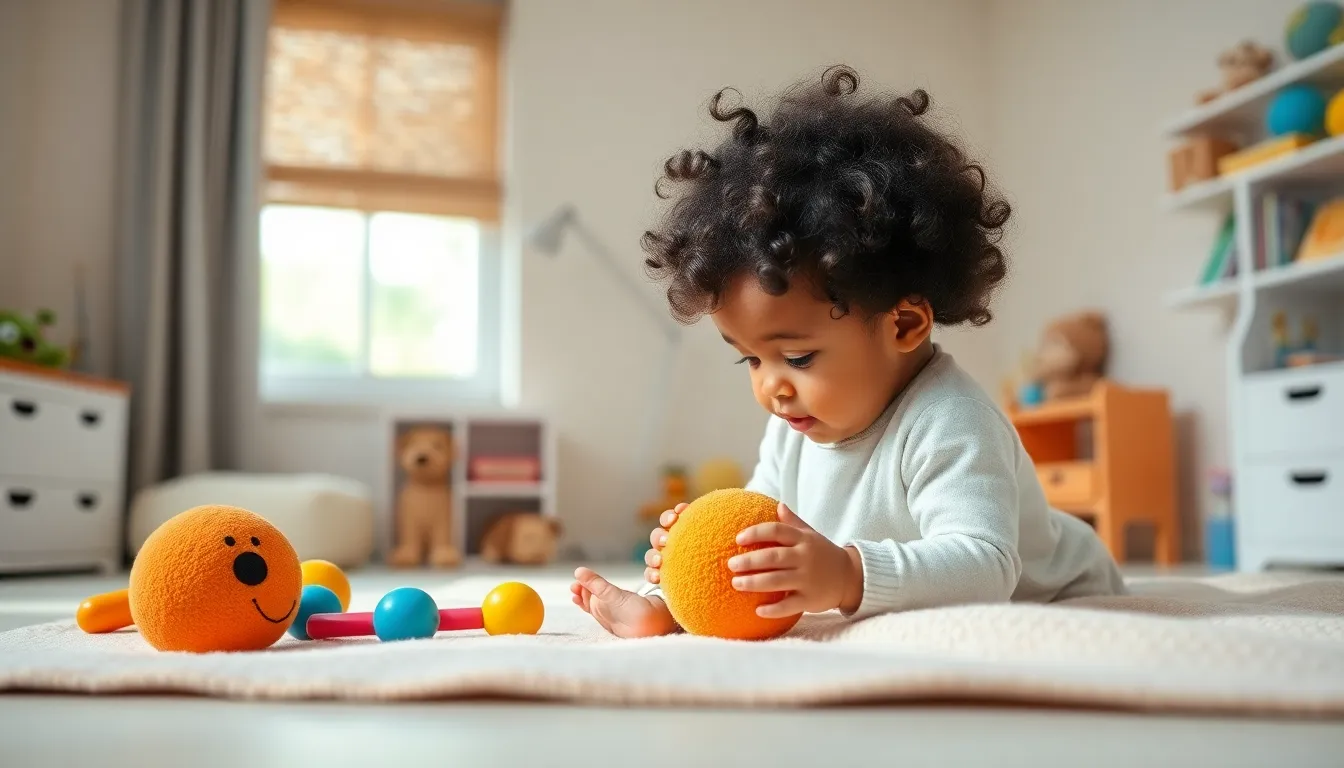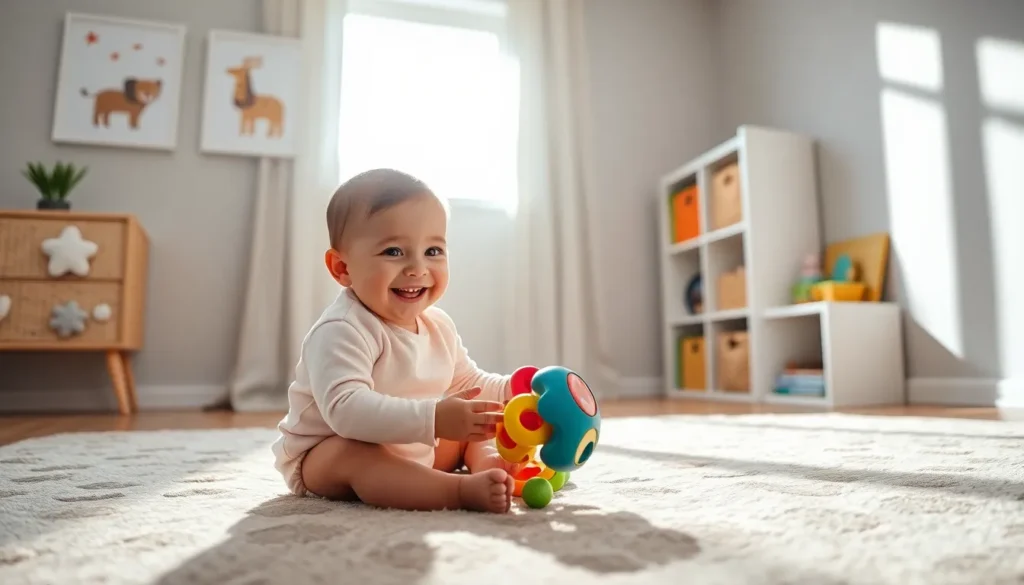Table of Contents
ToggleWhen pondering about the complexities of a baby’s mind, one might wonder, do babies have thoughts? It’s a question that tugs at the heartstrings of curious parents and caregivers alike. While it may seem like an enigmatic riddle, the reality is surprisingly fascinating and, dare we say, a bit funny too. Just imagine a tiny human, with a head full of thoughts, all while drooling on their favorite toy. It’s both endearing and baffling. In this text, we’ll unpack the intricate world of infant cognition, explore how their thoughts develop, and offer insights into how we can nurture their burgeoning minds.
Understanding Infant Cognition

To comprehend whether babies harbor thoughts, it’s crucial to grasp the fundamentals of infant cognition. Research indicates that even in the first few weeks of life, infants are not just passive observers: they actively process information from the world around them. Cognitive scientists have long debated the extent of this mental activity, suggesting that babies possess a rudimentary form of consciousness and awareness.
From recognizing familiar voices to distinguishing between different faces, infants start forming basic connections. It’s truly remarkable how they seem to respond to their surroundings, highlighting that they are likely to experience some form of thought, albeit primitive. The brain’s development accelerates during the first year, laying the groundwork for future cognitive capabilities.
In essence, while babies may not mull over philosophical dilemmas just yet, they certainly have a mind buzzing with the basics of perception and interaction.
The Development of Thought in Infants
The journey of thought development in infants is fascinating. As they transition from mere reflexive actions to more interactive behaviors, their cognitive abilities begin to blossom.
Methods to Study Infant Thought
Researchers employ various methods to investigate into infant thought. Techniques like eye-tracking and habituation studies allow scientists to gauge how babies react to different stimuli. For example, when an infant consistently looks longer at an unfamiliar object, it suggests they are processing and trying to understand it.
Behavioral Responses and Communication
Babies communicate through coos, gurgles, and even cries. These vocalizations serve as a window into their thoughts and emotions. While many parents jokingly refer to deciphering baby babble as a linguistic puzzle, these sounds can reveal a lot. For instance, a baby may gurgle happily at a toy, hinting at recognition and delight. Through such behavioral responses, it becomes clearer that infants possess thoughts in basic forms, informed by their experiences.
Factors Influencing Baby Thoughts
Various factors shape how a baby thinks. Their development is not solely determined by biology: environment and experience play significant roles.
The Role of Experience and Environment
Babies are like little sponges, soaking up every ounce of experience they can get. They learn by observing, and their environment greatly influences their cognitive growth. For instance, a baby exposed to music might develop a unique appreciation for sound, fostering an early sense of rhythm and recognition. Also, interactive play and exploration encourage thought development, showing that experience is a crucial factor in shaping their emerging minds.
Social Interactions and Cognitive Growth
The importance of social interactions cannot be overstated. When parents speak to their babies, showing expressions and responding to their needs, a dynamic form of communication emerges. This back-and-forth interaction is pivotal. It not only fosters a sense of secure attachment but also promotes cognitive growth. Babies learn about turn-taking, emotional expressions, and even basic communication skills during these interactions, all of which contribute to their early thoughts.
Implications for Parenting and Development
Understanding that babies possess thoughts can revolutionize parenting approaches.
Supporting Cognitive Development in Babies
One of the best ways to support cognitive development is through play. Engaging in activities like reading, singing, or even simple games like peek-a-boo can boost brain development. Such interactions enable babies to explore their worlds, encouraging curiosity and critical thinking. Also, providing a safe and rich environment filled with varied stimuli can heighten their cognitive abilities. These small, thoughtful steps can lead to significant results in shaping a baby’s developing mind.
Recognizing and Nurturing Early Thoughts
Recognizing that infants are capable of thought compels caregivers to pay closer attention to their non-verbal cues and behaviors. Learning to interpret these early signs can make a big difference in effective bonding and communication.
Being attuned to a baby’s needs fosters an environment rich in emotional security, which then allows their cognitive skills to flourish. Encouraging activities that promote exploration, like tummy time or allowing them to interact with various objects, can significantly enhance their thought development. It’s about nurturing their curiosity while facilitating a safe space for them to express themselves.







